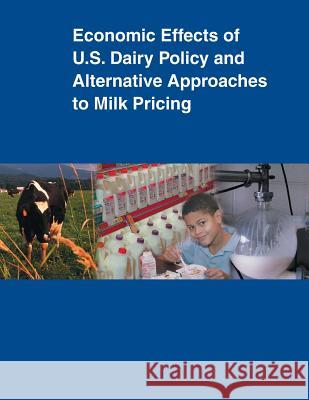Economic Effects of U.S. Dairy Policy and Alternative Approaches to Milk Pricing » książka
Economic Effects of U.S. Dairy Policy and Alternative Approaches to Milk Pricing
ISBN-13: 9781507748435 / Angielski / Miękka / 2015 / 110 str.
The U.S. Congress, in the Farm Security and Rural Investment Act of 2002 (the 2002 Act), directed the Secretary of Agriculture to conduct a "comprehensive economic evaluation of the ... effects of the various elements of the national dairy policy." The Act further directed the Secretary to study the effects of (a) terminating Federal milk price support and supply management programs, and (b) allowing State cooperation to manage milk prices and supply. Both studies deal with similar questions that relate to the effects of government policies on economic outcomes. For this reason, the two studies are combined into this single report. This report examines the effects of national dairy policy and its component programs as defined in the 2002 Act on milk and dairy product markets, farm households, nutrition programs, and the rural economy. These programs include: Federal milk marketing orders, the Federal milk price support program, State pricing programs and State-mandated over-order premiums, interstate dairy compacts, direct payments to milk producers, and the dairy export incentive program (DEIP). The report focuses on the following questions: what have been the measurable effects of dairy programs on economic variables-price level and volatility, milk production, and producer revenues? How have these market impacts in turn affected farms, rural economies, and nutrition programs? How might States cooperate to support prices in the absence of a Federal price support program? The standard tools of economic analysis are used to address these questions, but there are also other forces at work that have influenced the dairy sector. Changes in the dairy sector should be considered in a larger context with a longer-run perspective. Thus, the first part of this report answers another, related question: what factors can we identify that have been responsible for changes in the dairy sector?"











